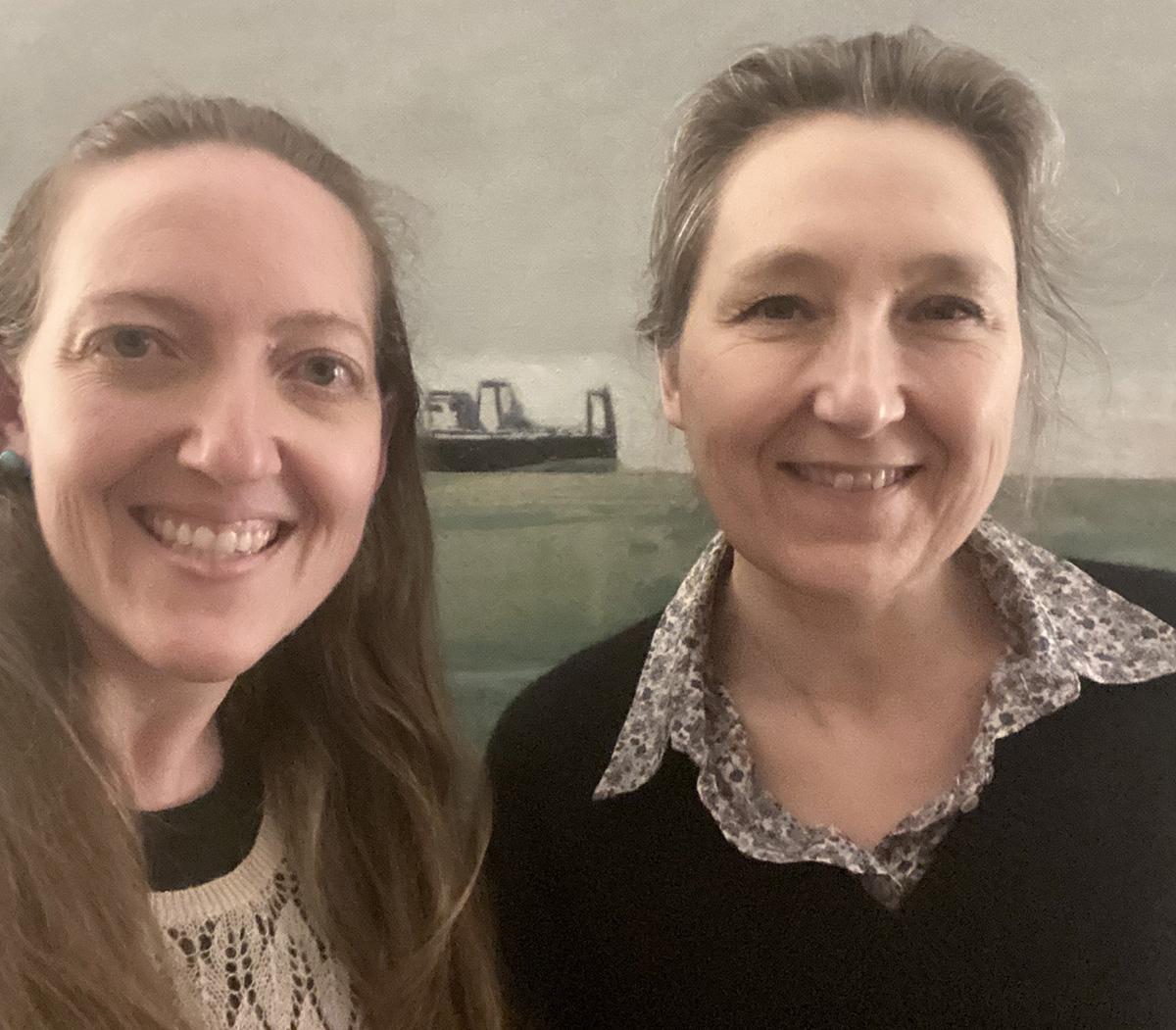
by Robin Okumu, PhD, Department of Comparative Literature
On January 26, 2022, in the thick of the Omicron wave of COVID-19 in both France and the US, I met French author Marie Darrieussecq for an interview at her home in Paris’ 15th arrondissement. I sat across from her—unmasked—in the very chair at the desk where she does her writing, while she sat cross-legged on a twin bed that nearly filled the rest of the small room. During a delightful hour and a half, we discussed (in French) to what extent we can read utopian “moments” amidst the dystopian realities in her fiction. More specifically, I asked to hear her thoughts about my readings of her novels and the way I interpret them within the concept I develop in my dissertation called “utopian relationality.”
Including Darrieussecq’s novels in a project about feminist literary utopias and utopianism initially seems strange and even out of place. The traditional concept of “utopia” means both a “good place” that exists “no place,” and if it is an imagined better or “best possible” future, then dystopia functions as the inverse—as a worse or “worst possible” scenario. Darrieussecq’s novels fall into this latter category since her protagonists struggle through loss, emptiness, and trauma while living through technologically advanced realities and nightmarish near-futures. Her first novel, Truismes (1996), begins this trend of individual dissolution and societal entropy by telling the story of a young woman who slowly transforms into a pig (with no clear reason or cause). This metamorphosis takes place against the backdrop of a partially destroyed futuristic Paris, where a neo-fascist government reigns and the female subject trades her objectified and abused body as currency. Darrieussecq describes the protagonist’s transformation in Truismes in almost agonizing detail with much blood and body horror as the narrator labors (in vain) to control and contain her changing form.
Although Truismes unfolds in this dystopian setting, it contains surprising glimmers of utopia in lyrical moments that erupt with effusive language and long, adjective-laden descriptions. These moments foreshadow the book’s ending, where, ironically, the narrator’s physical metamorphosis leads her to develop new linguistic abilities and an awareness of self. Through becoming a sow, she paradoxically finds her voice, understands her place in the world, and decides to write her story. The lyrical moments in Truismes have been discounted and overlooked in light of the novel’s more shocking and arresting dystopian aspects, but I read them as distilled expressions of a desire for a better way of existing. These flashes of light that Darrieussecq carves out from within the novel’s dark reality are subtle and fleeting but no less powerful for their rarity and precarity. They demonstrate an ideal, fantastic state of being-with the other and the world that leads to an understanding of the self as situated in and constituted through those relations.
Along with a selection of Darrieussecq’s novels, I analyze descriptions and depictions of this ideal state in the fictional works of Monique Wittig and Hélène Cixous; the texts I include stretch in total from 1969–2005. I group the three authors together under my concept of “utopian relationality,” which describes a radical and liberatory way of being-together in the world that acts as a core component of each writer’s feminism. It presents visions of revitalized relations with the self, the other(s), and the wider world. Through this concept, the authors rethink utopia not as a fantastic place but as an interconnected, relational state of being. The connections they describe are equally as important as the textual acts of narrating them, and so my methodology proceeds through close attention to their poetic strategies and linguistic experimentation, or the ways they rework language from within language. They both draw attention to the defects of gendered language and then imagine possible alternatives and different linguistic realities within their iction. Their prose struggles against itself to bend, break, and transform language in order to expand the boundaries of existing descriptive possibilities and conceptions of self.
I focus on these authors because they represent different areas of French feminist thought, yet they write in similar ways that have not been analyzed together. Monique Wittig was a lesbian separatist who sought to dismantle gender in language; Hélène Cixous is a key figure in French psychoanalytic feminism and a theorist of essential female difference; Marie Darrieussecq is a contemporary novelist from the generation that inherited the irreconcilable 1970s and 1980s debates in the French feminist movement. My project brings together these disparate writers by using utopian relationality as a unifying formal and conceptual thread. Throughout my study, I argue for a reconceptualization of the content, form, and function of their fiction, along with a reinterpretation of the ways the label “utopian” has been applied negatively to Wittig’s and Cixous’ work. Since Darrieussecq has been described as a dystopian writer, interpreting utopian moments in her fiction casts her writing in a nuanced light. It also provides an understanding of the ways utopia and dystopia intermingle in her contemporary fiction, as it is representative of a broader 21st-century feminist consciousness that both continues and complicates the debates of the 1970s and 1980s in France. Utopian relationality thus enables productive comparative readings of these three different authors, and it lays a foundation for future explorations of feminist fiction.
I am grateful to the CSWS Dissertation Completion Fellowship for allowing me the time and space to focus on finishing my dissertation, and even more, for enabling me to make the trip to Paris to interview Darrieussecq in person.
—Robin Okumu received a 2021–22 Graduate Writing Completion Fellowship from CSWS.
References
Darrieussecq, Marie. Truismes. Paris: P.O.L, 1996.

